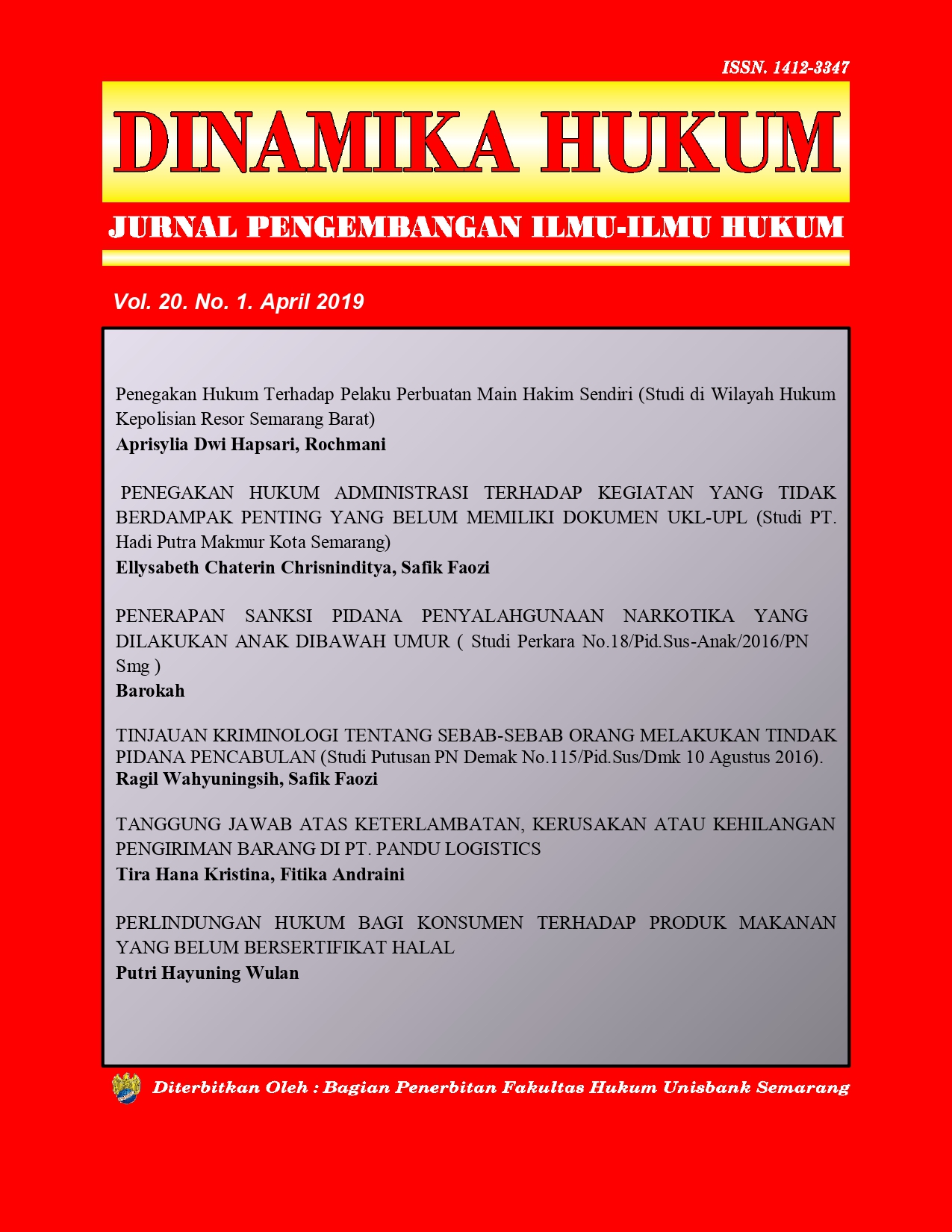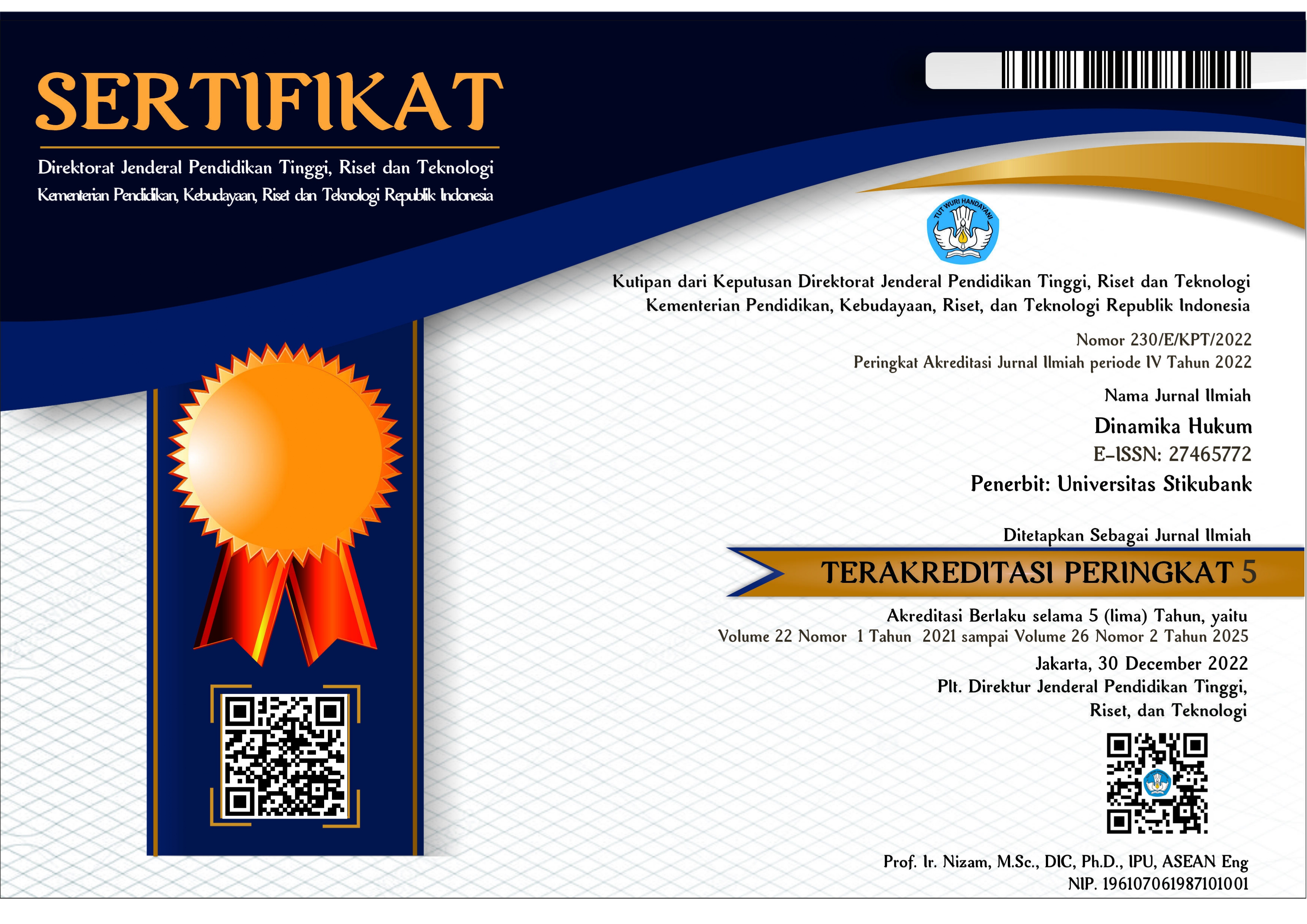PERLINDUNGAN HUKUM BAGI KONSUMEN TERHADAP PRODUK MAKANAN YANG BELUM BERSERTIFIKAT HALAL
Abstract
The development of the economy in Indonesia in the field of trade and industry has given birth to many types of goods and services. Helped with the advancement of information technology and telecommunications in Indonesia, resulting in the vast area of buying and selling transactions to foreign countries. As the largest Muslim population in the world, Indonesia has the potential to become the largest producer of halal food. Business actors not only pay attention to the composition of the medical course, but also need food that is consumed legally. Legal certification of food products as a form of consumer protection against the halal of a product, not only to protect consumers but also as a bulwark to eliminate abuse authorities that harm business actors are only in the interests of consumer protection. The above is the basis for the author to take the title: "LEGAL PROTECTION FOR CONSUMERS OF FOOD PRODUCTS THAT HAS NOT HALAL CERTIFIED".
The problem in this study is how the form of legal protection for consumers of food products that have not been halal certified and the legal consequences for businesses for food products that have not been halal certified.
This study uses a normative juridical approach. The research specifications used are analytical descriptive. The data of this research are secondary data obtained through literature study which are then analyzed using qualitative methods.
The research results obtained despite regulations made by the Government, in Act Number 8 on Consumer Protection in 1999 and Act Number 33 on Halal Product Guarantee in 2014, that the facts that occur there are still food products that have not been halal certified . Based on the results of the study, legal protection for consumers of food products that have not been halal certified is regulated in Article 45 of the Consumer Protection Act which regulates if consumers are harmed by products, consumers can file lawsuits with business actors as a form of legal protection against consumers. The obligation as a business actor to have a halal certificate is regulated in Article 4 of Law Number 33 of 2014 concerning Halal Assurance System, as a result of the law received by business actors for the circulation of food products that have not been halal certified, namely by providing administrative sanctions and criminal sanctions that are regulated in Article 62 of the Consumer Protection Act.
Keywords: Consumer Protection, Halal Certificate, Legal Effects












